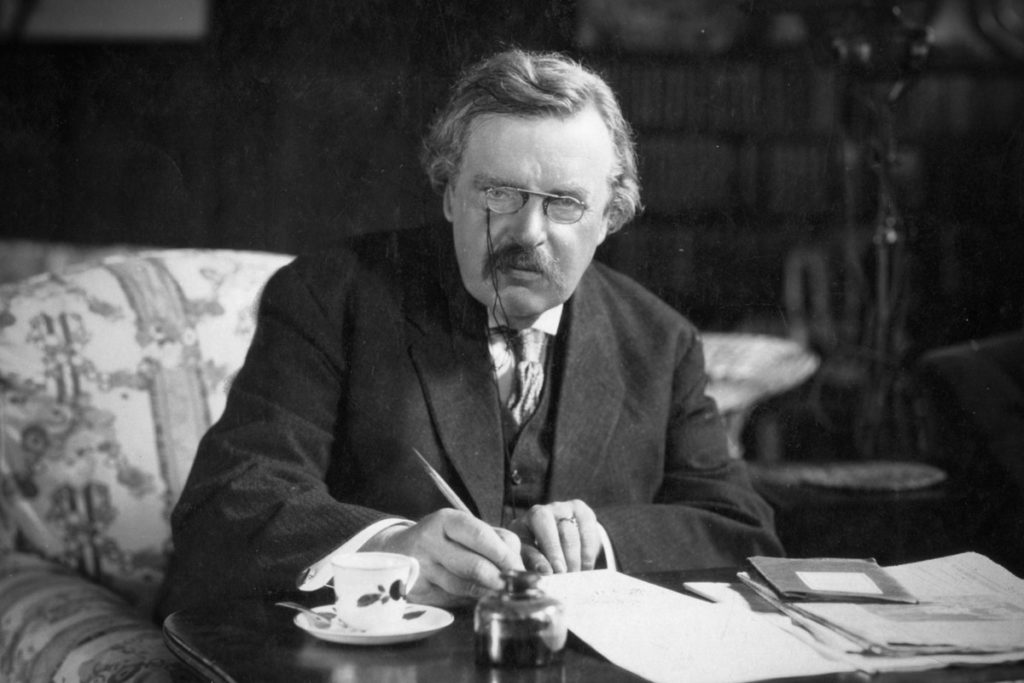Common Sense
Chesterton on Common Sense
Modern emancipation has really been a new persecution of the Common Man. If it has emancipated anybody, it has in rather narrow ways emancipated the Uncommon Man. It has given an eccentric sort of liberty to some of the hobbies of the wealthy and to some of the lunacies of those who call themselves cultured. The only thing that it has forbidden is common sense, as it would have been understood by the common people. (“The Common Man”)
G.K. Chesterton Tweet
G.K. Chesterton is known as “The Apostle of Common Sense” because he tells what we already know! But just as the end of a mystery story suddenly reveals something we’ve been staring at the whole time, Chesterton reveals truths that we’ve been staring at, but either can’t see, or have forgotten, or worse, have denied. Common sense means the things that almost all normal people believe to be true, even if they
can’t say what they are. “We call a thing common sense,” says Chesterton, “when it suffers from too much evidence in its favor; too much to be formulated or even remembered.” (New Witness, Feb. 27, 1920)
For instance, romance literature (and civilization, for that matter) is based on the common theme that a man and a woman fall in love and wish to get married and make a home and family together. It is normal for a man to work to provide for his family. It is normal for a mother to nurture her children. It is normal for men to defend their homes and their communities. It is normal for people to be courteous and helpful to other people. It is normal to grow things and build things rather than kill things and destroy things. This is common sense. “The first fact of common sense is the common bond of men.” (“The Way of the Desert,” The New Jerusalem) It is “the power of getting a general grasp of the tendencies of human experience as a whole.” (Illustrated London News, Jan. 12, 1929) The common sense of all mankind “is still the common sense of every man in his own daily dealings: that everything has its place and proportion and proper use, and that it is rational to trust its use and distrust its abuse.” (Illustrated London News, Jan. 28, 1922)
Chesterton says that a society is in decay when common sense has become uncommon, when straightforward ideas start to appear strange and unfamiliar, and the crooked conventions of the day and the fads and fashions of the moment seem more acceptable, even more urgent. That is why Chesterton calls common sense “that extinct branch of psychology.” (“The Unpsychological Age,” Sidelights) Christianity does appeal to a solid truth outside itself; to something which is in that sense external as well as eternal. It does declare that things are really there; or in other words that things are really things. In this Christianity is at one with common sense; but all religious history shows that this common sense perishes except where there is Christianity to preserve it. (“The Demons and the Philosophers,” The Everlasting Man)
Christianity does appeal to a solid truth outside itself; to something which is in that sense external as well as eternal. It does declare that things are really there; or in other words that things are really things. In this Christianity is at one with common sense; but all religious history shows that this common sense perishes except where there is Christianity to preserve it. (“The Demons and the Philosophers,” The Everlasting Man)
G.K. Chesterton Tweet





